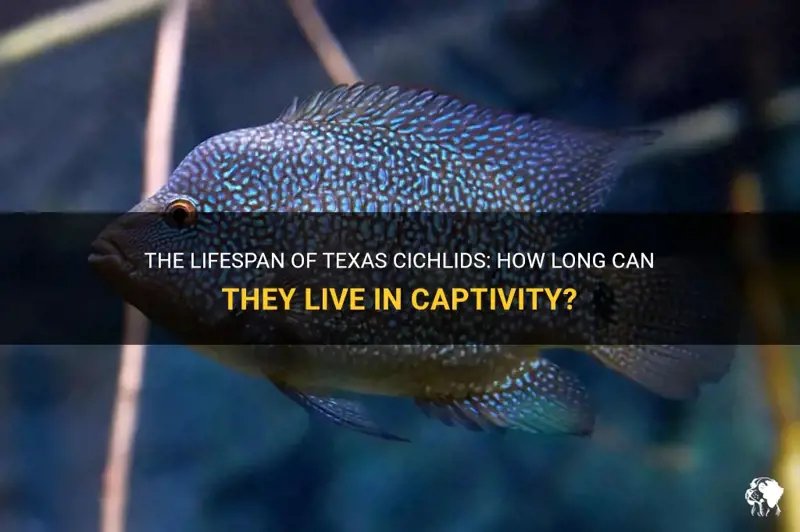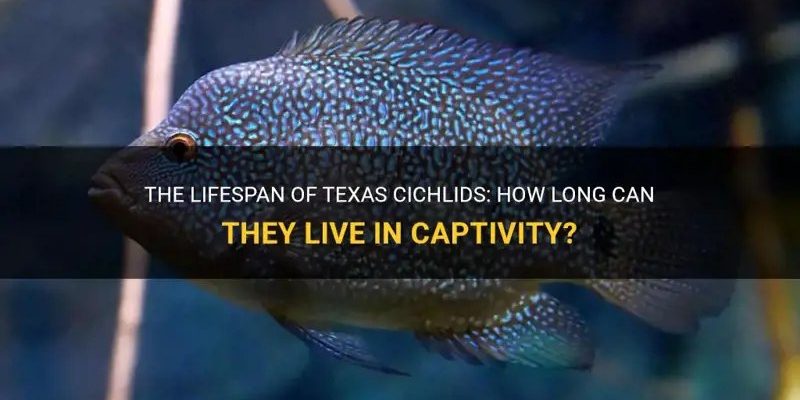
Imagine your cichlid like a small dog in a bigger, fishy world. Just like dogs, their lifespan can be influenced by various factors—everything from their diet to their living conditions. In this guide, we’ll dive into the lifespan of cichlids in captivity. We’ll explore what affects it, how to care for them to ensure a long life, and some interesting insights about these social fish that make them so popular.
Understanding Cichlid Lifespan Basics
Cichlids, known for their striking colors and personalities, can live anywhere from 5 to 15 years, depending on their species. Some of the more common cichlids, like the Oscar or the African Cichlids, tend to have a lifespan on the shorter end, around 5 to 10 years. Others, like the Discus, can live much longer—up to 15 years or more if properly cared for.
Here’s the thing: the lifespan can vary greatly based on genetics and how well they’re looked after. Just like humans, some cichlids are naturally hardy and can thrive longer than their peers. The key elements that directly influence their lifespan include water quality, diet, social structure, and overall tank setup.
Water Quality Matters
You might be wondering, “Why is water quality such a big deal?” Well, cichlids are sensitive to changes in their environment. They thrive in clean, well-maintained water. Poor water quality can lead to stress and illness, shortening their lifespan. Here are a few tips for keeping your tank in tip-top shape:
- Test your water regularly to check pH, ammonia, nitrites, and nitrates.
- Perform regular water changes to keep toxin levels low.
- Install a good filtration system that can maintain clarity and oxygen levels.
Keeping the water pristine creates a happy habitat, allowing your cichlids to flourish.
Importance of Diet for Longevity
What you feed your cichlids plays a significant role in how long they live. Just like a well-balanced diet can help you live longer, the right fish food helps your cichlids stay healthy. Most cichlids are omnivores, so they benefit from a mix of proteins and plant-based foods.
Here’s how you can create a balanced diet for your cichlid:
- Offer high-quality pellets that contain essential vitamins and minerals.
- Include occasional protein sources like bloodworms or brine shrimp.
- Add plant materials like spirulina flakes or blanched vegetables for variety.
By ensuring a diverse diet, you’ll not only boost their health but also encourage vibrant colors and active behaviors.
Social Structure and Tank Mates
Believe it or not, the social environment of your cichlid can impact its lifespan too. Cichlids are known for their territorial nature. When stressed by aggressive tank mates, they may exhibit signs of illness or decline faster.
To create a harmonious tank environment, consider these tips:
- Choose compatible species that won’t bully each other.
- Provide enough hiding spots and space to reduce stress.
- Keep an eye on their interactions and adjust tank mates as needed.
Happy fish lead to longer lives, and a well-thought-out community tank can make all the difference.
Common Cichlid Species and Their Lifespans
Different cichlid species come with varying lifespans, which is essential to know when planning your aquarium. Here’s a quick rundown of a few popular varieties:
| Species | Lifespan |
|---|---|
| Oscar | 10–15 years |
| African Cichlids | 5–10 years |
| Discus | 10–15 years |
| Angelfish | 10 years |
Knowing the lifespan of your specific cichlid can help you prepare for its needs as it ages. It allows you to focus on what’s needed to provide long-term care.
Signs of Aging in Cichlids
As your cichlid ages, you may notice some changes. Just like us, fish show signs of getting older, which can signal that they need special attention. Some signs to look out for include:
- Decreased activity or energy levels
- Changes in appetite or eating habits
- Fading colors or dulling of scales
Recognizing these signs early can help you adjust their care routine, ensuring they remain as healthy and happy as possible.
Maximizing Cichlid Lifespan: Best Practices
Now that you know the major factors affecting lifespan, let’s talk about some best practices. Here are a few actionable tips to maximize your cichlid’s life:
- Maintain stable water parameters and avoid sudden changes.
- Feed a varied, nutritious diet tailored to your cichlid’s species.
- Monitor tank behavior and intervene if aggression arises.
- Perform regular health checks to catch any issues early.
Focusing on these best practices can set you up for a successful cichlid-keeping experience.
Emotional Connection with Your Cichlids
Let’s not forget the emotional side of cichlid care. Building a bond with your fish can enhance your experience. They recognize their owners and may even respond to your presence! Spending time simply watching them swim and interact can be rewarding.
Having a long-lived cichlid means forming a connection with it, sharing in its unique behaviors, and appreciating the journey together.
The lifespan of cichlids in captivity can vary widely, but with the right care, they can live fulfilling lives, often outlasting expectations. Remember, paying attention to water quality, diet, social structure, and overall habitat will lead to a happier and longer life for your fish.
So, as you embark on your journey with cichlids, keep these lifespan tips in mind. Cherish the moments you have with them, and enjoy the vibrant world they bring to your home!

